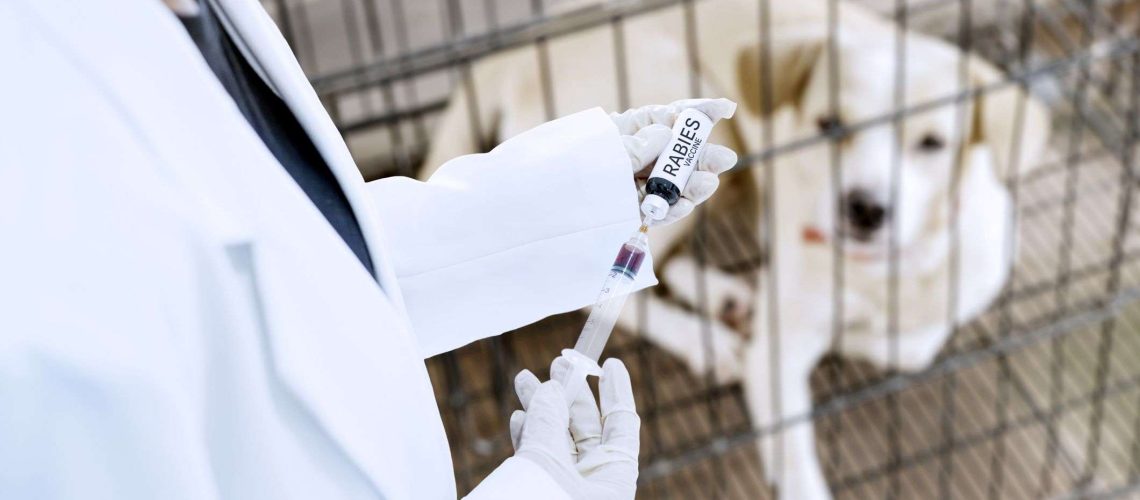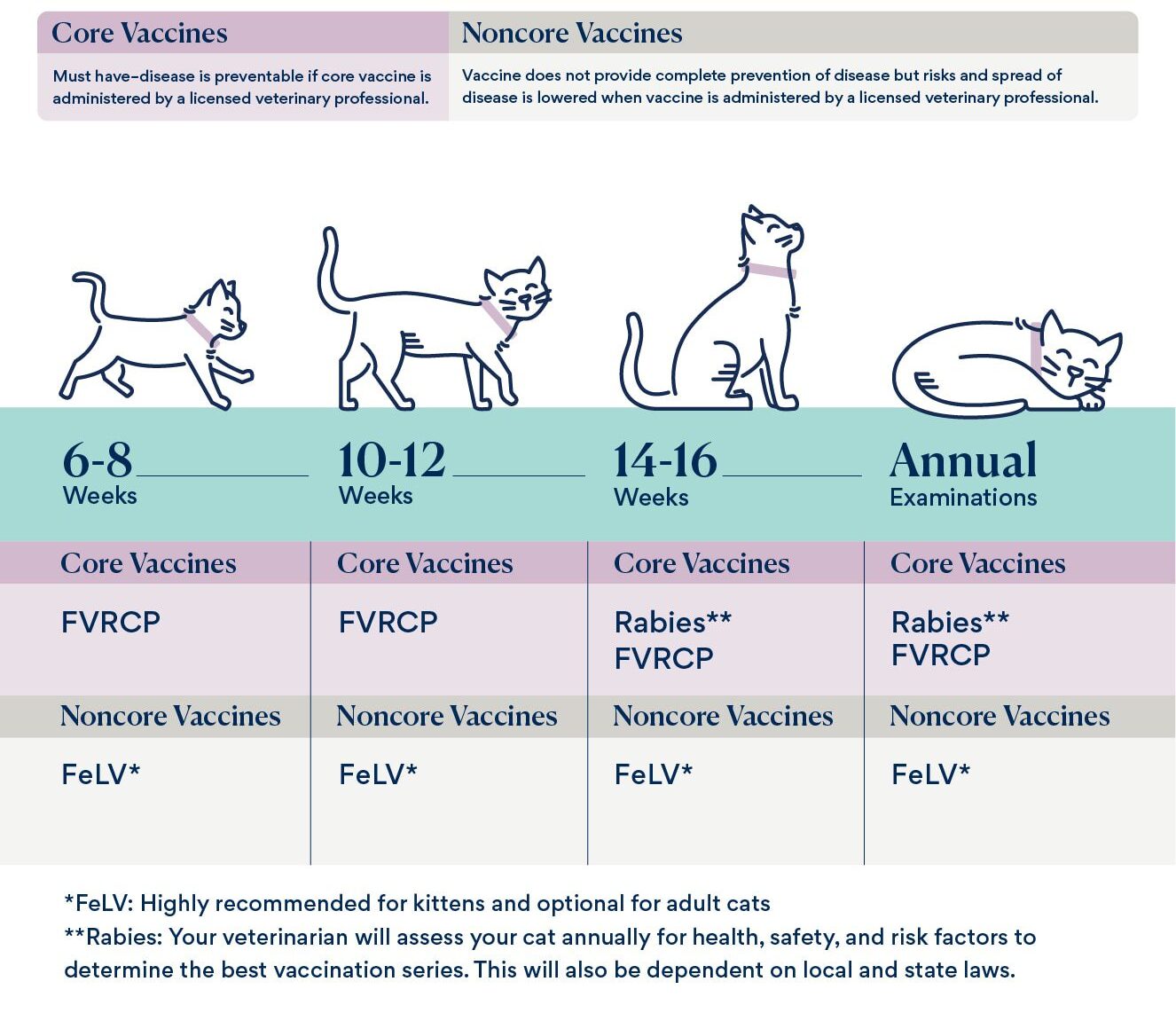Key Takeaways:
- Pet rabies shots are essential for protecting your pet from the deadly rabies virus.
- Rabies shots typically provide immunity for one to three years, depending on the type of vaccine used.
- It is important to keep your pet's rabies vaccinations up to date as required by local laws and regulations.
- Rabies shots are generally safe and well-tolerated by pets, with minimal side effects.
- Regular booster shots are necessary to maintain long-term immunity against rabies in pets.
Are you a proud pet owner? If so, then understanding the importance of pet rabies shots and how long they last is essential for ensuring the health and safety of your furry friend. Did you know that each year, approximately 59,000 people worldwide die from rabies? This deadly disease can easily be prevented through vaccination. In this article, we will explore the value of pet rabies shots and delve into how long their protection lasts. By the end, you'll have a clear understanding of why staying up-to-date with your pet's vaccinations is crucial. So let's jump right in and discover everything you need to know about pet rabies shots!
What is a pet rabies shot and why is it important for our furry friends?
A pet rabies shot is a vaccination given to dogs, cats, and other pets to protect them from the deadly rabies virus. Rabies is a viral disease that affects the nervous system of animals and can be transmitted to humans through bites or scratches from infected animals. Getting a rabies shot is crucial for our furry friends because it helps prevent them from getting infected with this dangerous virus.
When a pet receives a rabies shot, their body produces antibodies that fight against the rabies virus. These antibodies help protect the pet if they ever come into contact with an animal carrying the virus. By vaccinating our pets, we not only keep them safe but also reduce the risk of rabies spreading to humans.
Why should I get my pet vaccinated?
Vaccinating your pet against rabies is essential for their health and wellbeing. Here are some reasons why getting your pet vaccinated is important:
- Prevents the spread of rabies: Rabies can be transmitted from infected animals to humans, so by vaccinating your pet, you are helping to control the spread of this deadly disease.
- Protects your pet's life: Rabies is almost always fatal once symptoms appear. Vaccination provides protection against this deadly disease and increases your pet's chances of survival if they encounter an infected animal.
- Mandated by law: In many countries and states, it is a legal requirement to have pets vaccinated against rabies. Compliance with these laws ensures public safety and can prevent legal consequences for pet owners.
How does the vaccine work?
The rabies vaccine contains a small amount of inactivated or weakened rabies virus. When the vaccine is injected into a pet's body, it stimulates their immune system to produce antibodies specifically designed to fight the rabies virus. These antibodies provide protection by neutralizing the virus if the pet ever gets exposed to it.
It's important to note that the rabies vaccine does not contain live virus particles, so it cannot cause rabies in pets. The vaccine is safe and has been proven effective in preventing rabies in animals.
How often should pets receive rabies shots to stay protected?
The recommended frequency for pet rabies shots
When it comes to protecting our beloved pets from the deadly rabies virus, it is crucial to ensure they receive their rabies shots at the appropriate intervals. The recommended frequency for pet rabies shots may vary depending on factors such as the type of vaccine used and local regulations. However, in general, most veterinarians advise that dogs and cats receive their initial rabies vaccination around 12-16 weeks of age. This initial shot is usually followed by a booster vaccine after one year. Afterward, most pets will require a rabies shot every three years to maintain their protection against this dangerous disease.
Why regular vaccinations are essential
Regularly vaccinating our pets against rabies is vital not only for their well-being but also for public health. Rabies is a viral infection that can be transmitted from animals to humans through bites or scratches. By ensuring our pets are up-to-date with their rabies shots, we minimize the risk of them contracting the disease and potentially passing it on to us or other animals they come into contact with.
How does a pet rabies shot prevent our pets from getting rabies?
A pet rabies shot works by stimulating an immune response in our furry friends' bodies, helping them develop antibodies against the virus that causes rabies. When a vaccinated pet encounters the actual virus, their immune system recognizes it and rapidly produces these antibodies to neutralize and eliminate the threat.
The vaccine contains either an inactivated form of the virus or a recombinant protein that mimics parts of the virus. These components are harmless but still trigger an immune response similar to what would occur during a natural infection. By exposing our pets to these harmless components, their immune system learns to recognize and respond effectively to the real virus if they ever encounter it.
Are there any risks or side effects associated with pet rabies shots?
While pet rabies shots are generally safe and well-tolerated, as with any medical intervention, there can be potential risks or side effects. However, it is important to note that serious adverse reactions are rare.
Common side effects of pet rabies shots
- Mild swelling or discomfort at the injection site
- Lethargy or temporary loss of appetite
- Low-grade fever
If any of these side effects occur, they typically resolve within a few days without requiring medical intervention. However, if you notice more severe symptoms such as difficulty breathing, facial swelling, or persistent vomiting, it is crucial to contact your veterinarian immediately.
How long does the protection from a pet rabies shot last, and when should we schedule the next vaccination?
The duration of protection provided by a pet rabies shot can vary depending on factors such as the vaccine used and local regulations. In general, most vaccines offer immunity for at least three years after the initial series of vaccinations.
To ensure continuous protection against rabies, it is essential to follow your veterinarian's recommendations regarding the timing of booster shots. Typically, a booster vaccination is required one year after the initial shot. Subsequently, revaccination every three years is often recommended. However, specific laws and regulations may differ based on your location. Therefore, it is crucial to stay informed about local requirements and consult with your veterinarian regarding the appropriate schedule for your pet's next vaccination.
What laws or regulations do owners need to follow regarding pet rabies shots?
Owners have a responsibility to comply with laws and regulations regarding pet rabies shots to ensure the safety of their pets and the community. These laws vary depending on the country, state, or local jurisdiction.
Common requirements for pet rabies vaccinations
- Mandatory vaccination: In many areas, it is mandatory for dogs and cats to receive regular rabies vaccinations. Failure to comply with these requirements may result in fines or other penalties.
- Vaccination certificates: Owners are often required to keep proof of their pets' rabies vaccinations in the form of vaccination certificates or tags. These documents may need to be presented upon request by authorities or when traveling with your pet.
- Age restrictions: Some jurisdictions impose age restrictions on when pets can receive their initial rabies vaccination. It is important to familiarize yourself with these regulations and ensure timely compliance.
To stay informed about the specific laws and regulations in your area, consult with your local animal control agency or veterinarian. By adhering to these guidelines, you not only fulfill your legal obligations but also contribute to safeguarding the health and well-being of both your beloved pet and the community at large.
In conclusion, pet rabies shots are important for keeping our furry friends safe from the deadly disease. These shots typically last for about one to three years, depending on the specific vaccine used.
How long does the 1 year rabies vaccine last in dogs?
Typically, puppies receive their initial rabies vaccination around 16 weeks of age in most states. The second vaccination is given one year after the first one. After that, your dog will receive a rabies vaccine annually or every three years as determined by state laws and the specific vaccine used.
Do dogs really need rabies shots every year?
Typically, puppies in most states will get their initial vaccination at around 14 to 16 weeks old, and then a booster shot one year later. Following that, your dog should receive a rabies booster every 1-3 years, depending on state regulations and the specific vaccine utilized.
Does rabies vaccine last for 5 years?
Rabies is a deadly virus that can be spread through the bite or lick of an infected animal. However, it can be prevented by getting vaccinated. The rabies vaccine remains effective for up to three years after receiving two doses.
How many rabies shots do dogs need in their lifetime?
After the initial year, dogs usually receive the DAP shot every three years. The frequency of the rabies shot differs depending on the state, with some states mandating an annual booster for this disease. Otherwise, dogs only need to get the rabies booster every three years.
Is there a difference between 3 year and 1 year rabies vaccine dogs?
There is no distinction between the two. They are identical vaccines. This is confirmed by veterinary immunologist Dr.
What is the difference between 1 year and 3 year rabies vaccine for dogs?
In reality, three-year rabies vaccinations are no different from one-year vaccinations. They do not contain any extra dosage or disease-causing agents to stimulate an immune response. The only distinction lies in the labeling of the vaccinations.

















